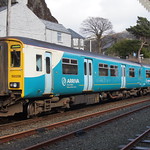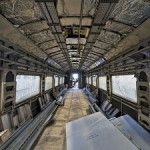Beleagured commuters in Northern England and South Wales can rejoice. The ambitious electrification plans over the next few years should release enough more modern units to replace the entire class 142 “Pacer” fleet, and Angel Trains plans to withdraw them all by 2019.
These trains date from the mid 1980s, a time when the railways were at a low ebb, starved of funds by a government that believed public transport was for losers. They were a low-cost solution based on a Leyland National bus body mounted on a freight wagon chassis. Known as “Nodding Donkeys” due to their pitching motion when they get up to any speed, they’ve never provided a comfortable ride. They had a design life of 20 years, which they’ve now exceeded by some margin. All the new rolling stock delivered in recent years has been needed increase capacity, with none left over to replace worn-out older trains.
I remember my first encounter with these trains, in 1986. I was travelling to St.Austell in Cornwall, and had to change at Plymouth. I was expecting the connecting train to be a class 50 and a rake of good old Mk1 coaches, but instead we were confronted with a pair of 142s in faux-Great Western chocolate and cream. The look on many passengers’ faces was priceless.
They didn’t last long on Cornwall. The four-wheeled fixed wheelbase chassis really didn’t like the sharp curves on many of the Cornish branches, and they were banished to the north of England within eighteen months.
For those nostalgic for the 1980s rail experience, there are plans to preserve one.




I remember that in Cornwall Glad to see the back of them in South Wales but what will people fight on now in the Valleys?
Glad to see the back of them in South Wales but what will people fight on now in the Valleys?
Valley lines are being electrified. Probably won’t get brand new trains, but older stock cascaded from London.
I remember them coming in on the Manchester-Sheffield route and the gearboxes being utterly unable to handle the gradients. Dreadful bits of kit.
When originally introduced the gearboxes were not fit for purpose. The whole lot had to be rebuilt with new transmissions within a few years.
Several have derailed after engines fell off while the train was moving. That is not exactly British engineering at its best.